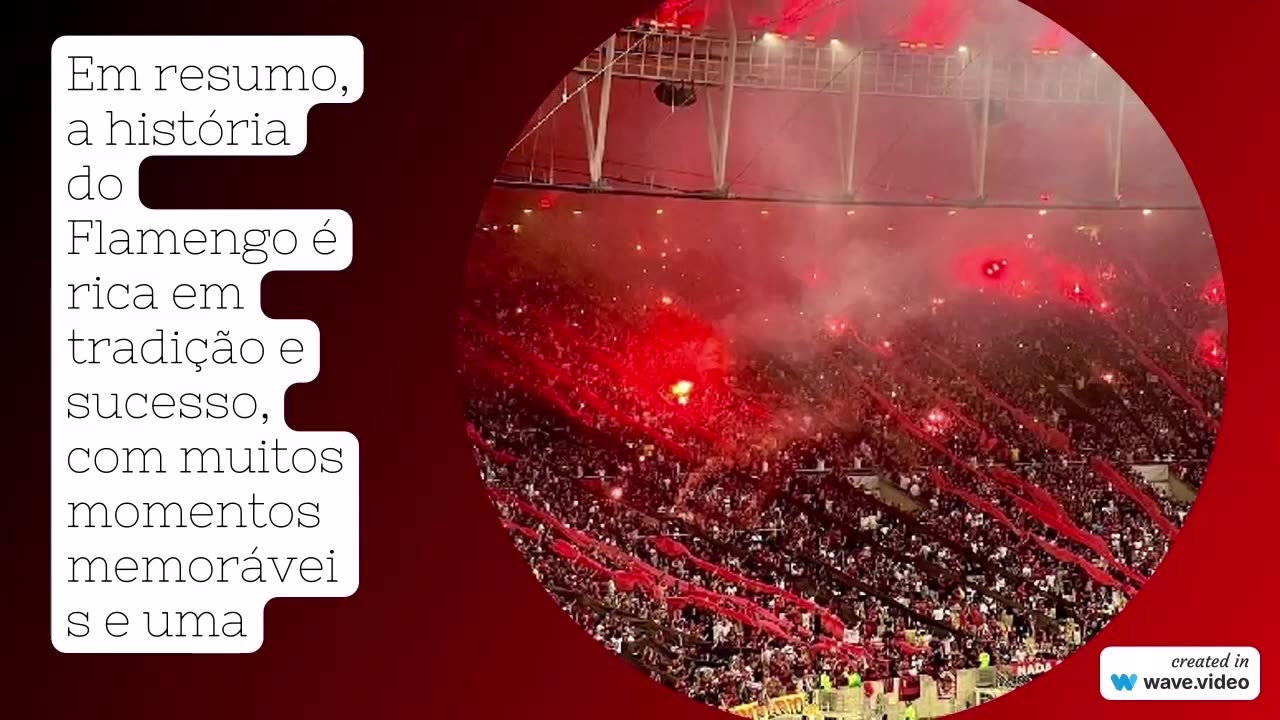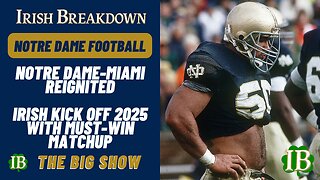Premium Only Content

Flamengo is one of the most
Flamengo is one of the most popular and successful football clubs in Brazil.
Founded in 1895 as a rowing club, Flamengo entered football in 1912 and quickly became one of the top clubs in Rio de Janeiro.
In the 1930s, Flamengo won its first championship in Rio and, in 1942, won its first Brazilian championship.
In the 1950s, the club won four more Rio championships and in 1955 won its first Guanabara Cup.
In the 60s, Flamengo formed a legendary team with players like Zagallo, Gérson, Jairzinho and others.
That team won several important titles, including the Copa Libertadores de América in 1981 and the Interclub World Championship in the same year.
In the following decades, Flamengo continued to be successful, winning several state and national titles.
In 2009, the club won its sixth Brazilian title, and in 2019, won the Copa Libertadores da América for the second time in its history, in addition to also winning the Brazilian Championship in the same season.
Flamengo is known for its passionate fans and the iconic stadium, Maracanã. The club is also known for having produced many talented players, including Zico, Júnior, Adriano, Ronaldinho Gaúcho, among others.
In short, Flamengo's history is rich in tradition and success, with many memorable moments and a loyal and passionate fan base that makes Flamengo one of the most popular clubs in the world.
In addition to its achievements on the field, Flamengo is also known for its social and cultural engagement.
The club has one of the biggest fans in Brazil and in the world, with millions of fans spread across the country and in several foreign countries.
Flamengo is also known for its social projects, such as the Flamengo Sports School, which provides sports training and education for children and young people from underprivileged communities in Rio de Janeiro.
Another important initiative is the Flamengo Memory Center, which preserves the history of the club and its contribution to Brazilian and world football.
The center includes a museum with trophies, photos, uniforms and other historical objects, as well as a library and document archive.
In addition, Flamengo has a strong presence in Brazilian popular culture, being mentioned in several songs, films and books.
The club is also a frequent topic on social networks and in the sports press, being one of the most discussed subjects in Brazil.
In summary, Flamengo is a football club with a rich and diverse history, which goes beyond its achievements on the pitch.
The club has a strong presence in Brazilian popular culture and is known for its social and cultural engagement, in addition to its passionate and loyal fans. Flamengo is an important institution in the Brazilian and world football scene.
Flamengo is a club that has always attracted talented players and stars from Brazilian and international football.
Some of the most iconic players in the club's history include Zico, Júnior, Adílio, Bebeto, Romário, Ronaldo, Ronaldinho Gaúcho, among others.
These players helped build Flamengo's history and create memorable moments for the fans, such as the 1987 Brazilian Championship final against Internacional, which is considered one of the club's greatest victories.
Flamengo is also known for having an extremely passionate and loyal fan base.
The Nação Rubro-Negra, as Flamengo fans are known, is one of the biggest in the world and is present throughout Brazil and in several foreign countries.
Maracanã, the most emblematic stadium in Brazilian football, is the home of Flamengo and the stage for many of the club's achievements.
The stadium has hosted major sporting events, including the 1950 World Cup final, the 2019 Copa Libertadores final and the opening and closing ceremonies of the Rio de Janeiro Olympic Games in 2016.
In recent years, Flamengo has established itself as one of the main clubs in world football, with important achievements and an increasingly passionate and engaged crowd.
The club continues to invest in its infrastructure and in its social and cultural projects, with the aim of becoming an increasingly stronger and more representative club on and off the field.
In short, Flamengo's history is marked by great achievements, talented players, passionate fans and an iconic stadium.
The club is a symbol of Brazilian and world football, and continues to grow and strengthen each year.
-
 DVR
DVR
Nerdrotic
3 hours ago $1.18 earnedNerdrotic Nooner 509
9.8K -
 1:48:16
1:48:16
Tucker Carlson
2 hours agoCliffe Knechtle Answers Tough Questions About the Bible, Demons, Israel, Judas, Free Will, and Death
47K78 -
 LIVE
LIVE
Viss
3 hours ago🔴LIVE - How To Winner Winner Chicken Dinner! - PUBG
186 watching -
 1:00:41
1:00:41
Timcast
3 hours agoTrump MOBILIZING National Guard In NATIONWIDE Crackdown
122K130 -
 1:06:02
1:06:02
Sean Unpaved
2 hours agoQuarterbacks, Coaches, & Contracts: Sanders' Draft Drama, Meyer vs. Harbaugh, & McLaurin's Big Deal
14.9K -
 2:11:45
2:11:45
Steven Crowder
5 hours agoDonald Trump Vs American Crime: Chicago is Next & Libs Are Freaking Out
299K267 -
 41:08
41:08
Grant Stinchfield
2 hours ago $1.49 earnedDemocrats Try to Turn California Into Predator Playground with Proposed "Child Predator Dream Bill"
16.7K2 -
 1:21:06
1:21:06
Rebel News
2 hours agoCdn troops in Ukraine? Poilievre backs self-defence, Hamas thugs cancel Ottawa Pride | Rebel Roundup
18.3K19 -
 24:58
24:58
Neil McCoy-Ward
2 hours ago⚠️ OUTRAGE! What They Just Announced For YOUR HOME!!! 🚨
18.4K11 -
 LIVE
LIVE
IrishBreakdown
4 hours agoNotre Dame and Miami Set To Reignite Intense Rivalry
302 watching